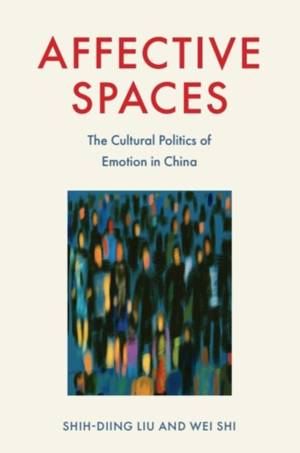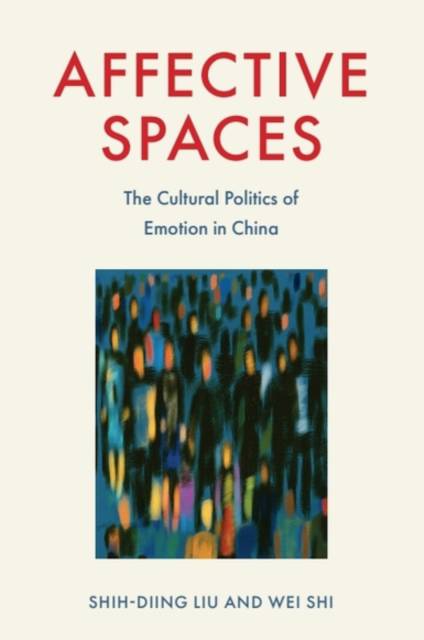
- Afhalen na 1 uur in een winkel met voorraad
- Gratis thuislevering in België vanaf € 30
- Ruim aanbod met 7 miljoen producten
- Afhalen na 1 uur in een winkel met voorraad
- Gratis thuislevering in België vanaf € 30
- Ruim aanbod met 7 miljoen producten
Zoeken
Affective Spaces
The Cultural Politics of Emotion in China
Shih-Diing Liu, Wei Shi
Paperback | Engels
€ 40,45
+ 80 punten
Uitvoering
Omschrijving
The growing political conflicts unfolding in China provide an opportunity for rethinking the cultural politics of affect. Although the political formations in the region can be laden with a multitude of emotions, they tend to be poorly understood. This book explains why affect and emotion matter to Chinese politics from the Mao Zedong to the Xi Jinping era. It makes a unique contribution by investigating why and how affect matters to politics through a series of in-depth case studies of various art forms. It studies the dynamics of political passions and the contexts from which emotional subjects engage in hegemonic struggles through the creation of various cultural forms. Topics discussed include the mobilisation of revolutionary emotions in political movements, the desire of nationalism, the virtual affective space created by antagonistic identity politics, the subaltern body as a surface of emotion work, and the blurring of public-private divides on social media. This book finds that cultural feelings and emotional experiences are salient to understanding political life, action and order. It concludes that the formulation and reconfiguration of the affective space are essential to political struggle.
Specificaties
Betrokkenen
- Auteur(s):
- Uitgeverij:
Inhoud
- Aantal bladzijden:
- 240
- Taal:
- Engels
Eigenschappen
- Productcode (EAN):
- 9781399518277
- Verschijningsdatum:
- 31/12/2025
- Uitvoering:
- Paperback
- Formaat:
- Trade paperback (VS)
- Afmetingen:
- 156 mm x 234 mm
- Gewicht:
- 384 g

Alleen bij Standaard Boekhandel
+ 80 punten op je klantenkaart van Standaard Boekhandel
Beoordelingen
We publiceren alleen reviews die voldoen aan de voorwaarden voor reviews. Bekijk onze voorwaarden voor reviews.







